Review by Tim Robins
A mysterious bounty hunter, Rogue, is about to change the Doctor’s life forever when he and Ruby arrive at an 1813 ball…
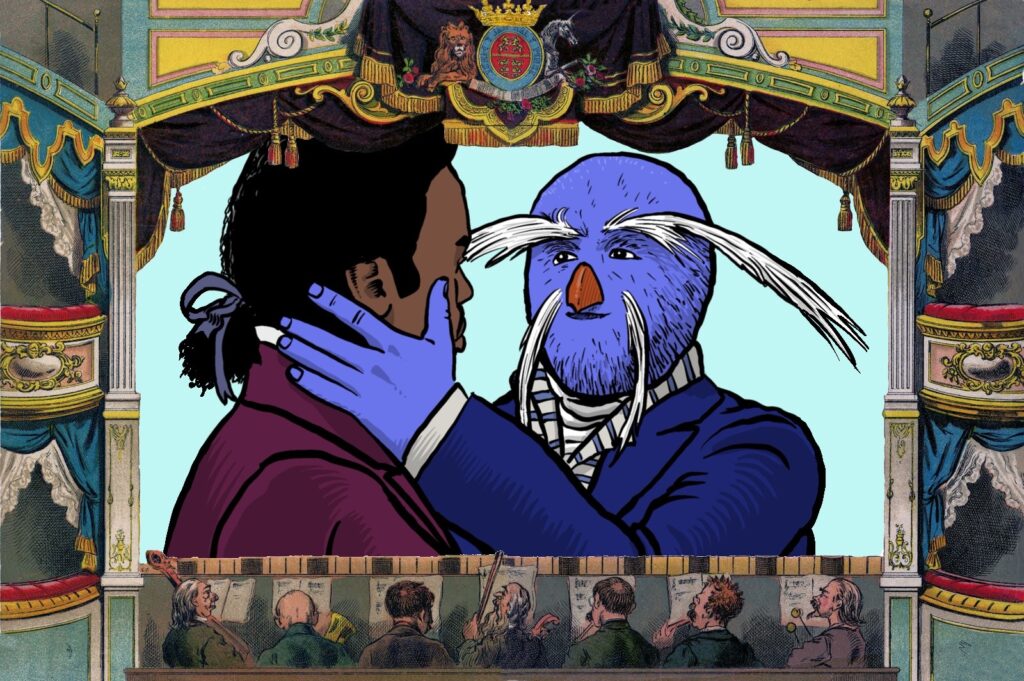
Review by Tim Robins
At the moment, my laptop has mostly been showing me men snogging each other. On Thursday, I saw Donald Trump exchanging slobbery kisses with the vile, racist, criminal Joe Arpaio and, on the following Saturday, I watched the debonair Jonathan Groff having a big ol’ kiss with Ncuti Gatwa on a dance floor in the Orangery at Margam Country Park in South Wales, here masquerading as a manor house in Georgian England circa 1813.
“Rogue”, Episode 7 of Season One, was archly postmodern, with references to the popular Netflix series Bridgerton, now on its third season. Indeed, all the spaces on a BridgertonBingo card were duly filled: a Georgian ball (check), flirtatious dancing (check), much fussing around social etiquette (check) and a nod to Jane Austin’s scandalous Mr D’Arcy (check).
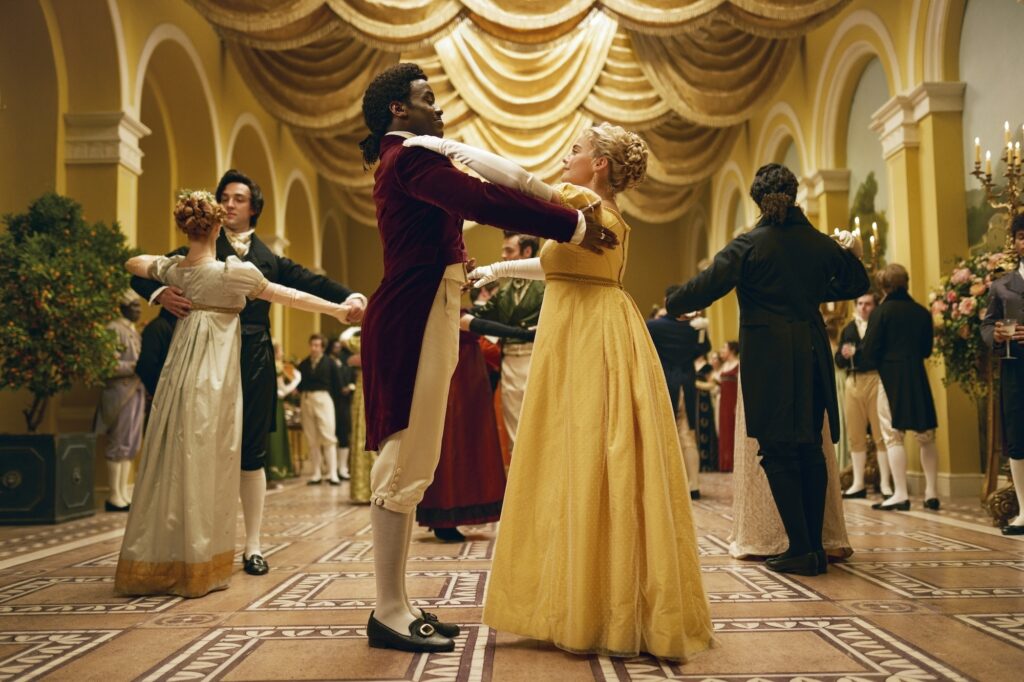
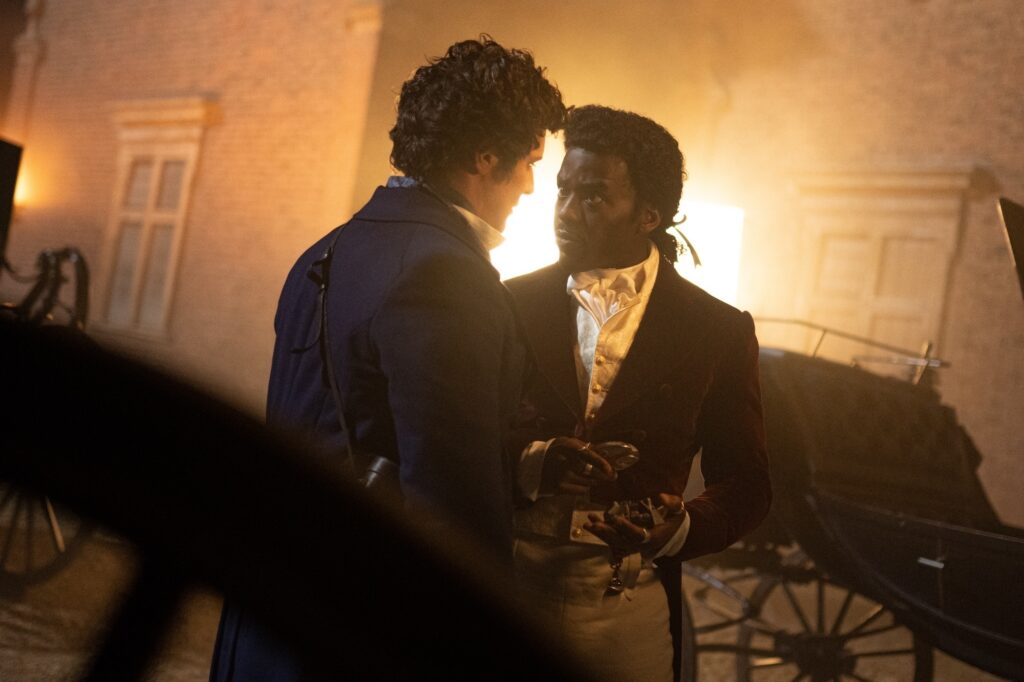
The script was all terribly Meta, with Ruby expressing her love for the Bridgerton TV series, a love shared by the feathery aliens – the Chuldur, as the budgies in disguise were called. Apparently, the creatures had picked up TV signals from Earth in the future and had now come back in time to engage in deadly cosplay involving taking on human form – a process that destroyed the original bodies.
None of this was terribly original. Apparently, the writers had approached Doctor Who’s showrunner with a desire to write a “queer romance”. At times, I felt he had replied by saying “Yes, in fact here’s a script I wrote decades ago that’s been gathering dust on my shelf”. The titular Rogue echoed John Barrowman’s Captain Jack Harkness, right down to his invisible spaceship. The Doctor gyrating his hips to Kyle Minogue’s “Can’t Get You out of My Mind” led me to wonder if some of this story originated in the early 2000s.
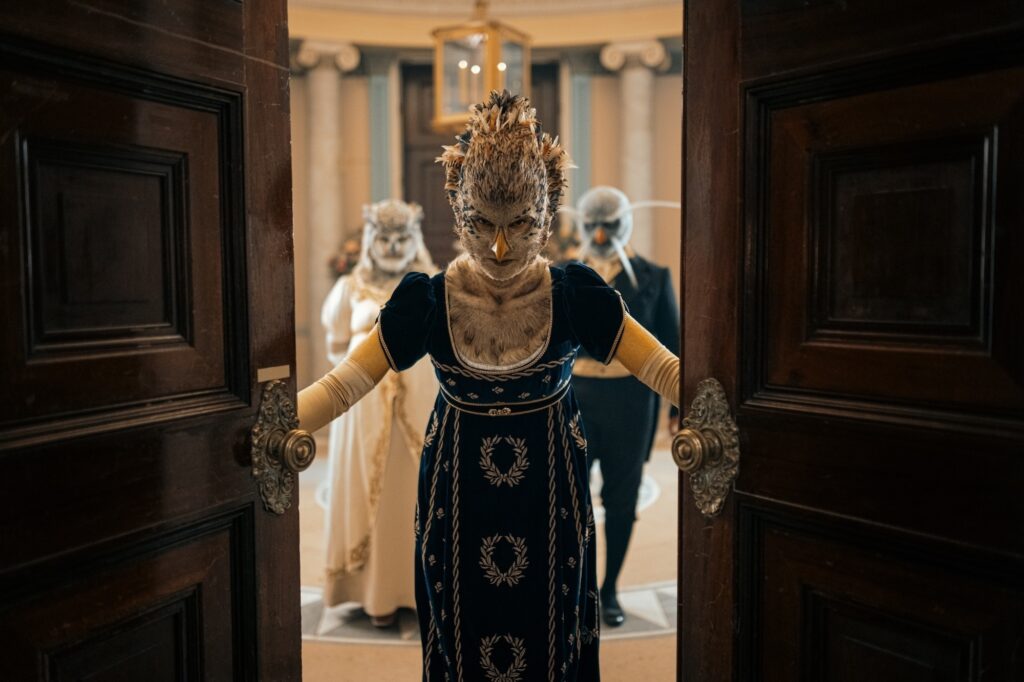
There was an attempt to explore fandom in various ways. Rogue had taken his name fromDungeons and Dragons and the Chuldur were described as cosplayers. In fact, they were LARPers i.e. Live Action Role Players (thanks to Council of Geeks for this observation). While spinning their yarn of scandal and intrigue, writers Kate Herron (of Loki fame) and Briony Redman dropped the ball of wool when it came to this particular strand.
There were plenty of good performances, not least Indira Varma as the gossipy matchmaker and party host, the Duchess of Pemberton. The Duchess was one of the few characters that caught my interest, although Ruby’s developing friendship with Emily Beckett (played by Camilla Aiko) was also fun while it lasted – but I should have suspected something was up when Miss Beckett enjoyed trying out Ruby’s lower class, northern accent.
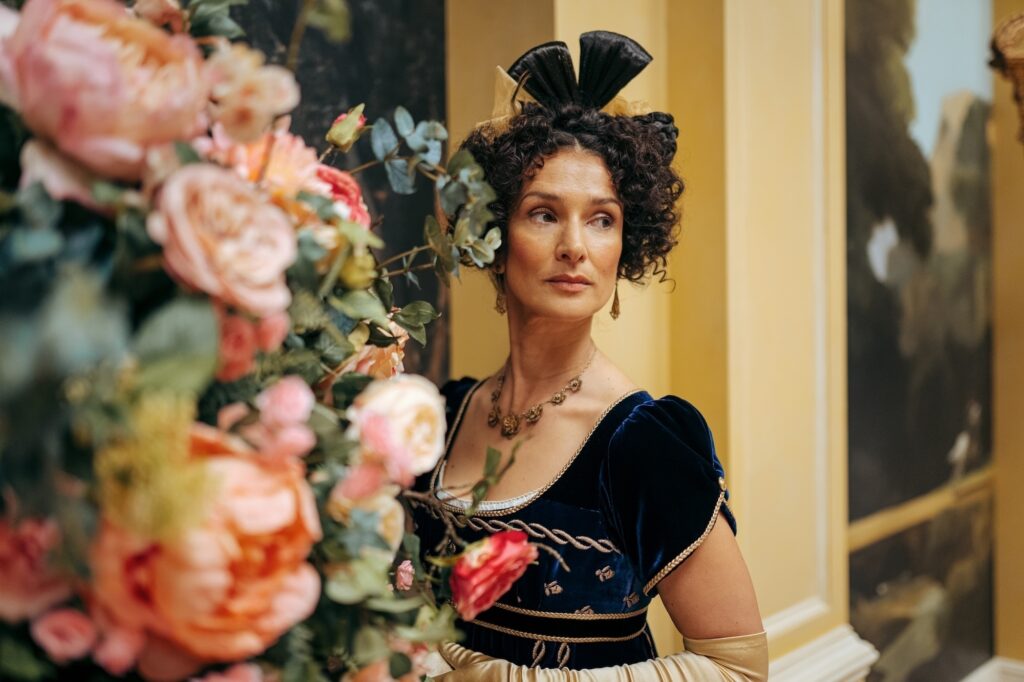
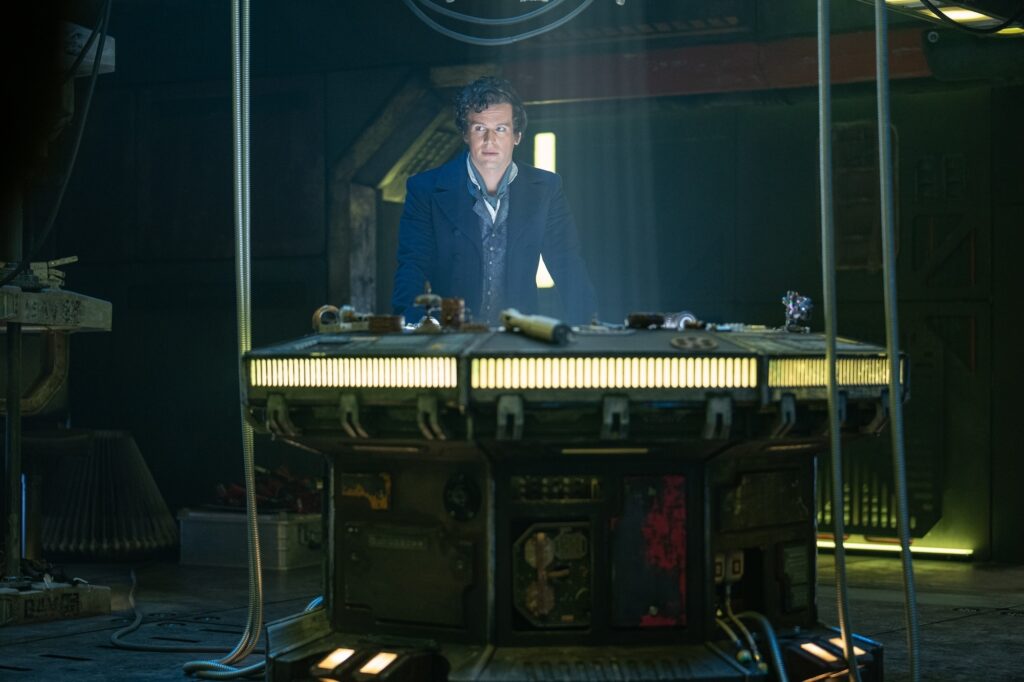
The production certainly looked polished. Director Ben Chessel made good use of the locations and the ballroom scenes had an opulence rarely seen on Doctor Who. The scenes of the Chuldur stalking the grounds provided some genuinely scary moments. The aliens themselves walked a tightrope between silly and scary. The decision to make them look like exotic birds fitted a period in which the most popular pet was a “popinjay” – a parrot to you and me – unless you were the king, in which case only a giraffe would do!
The episode was burdened by lots of publicity foreshadowing what was meant to be a life changing event for the Doctor. Which Doctor wasn’t specified, so I guess they meant thisDoctor. Throughout the episode, I was struggling to work out what that would be. For many fans, the episode’s big moment came when Richard E Grant’s face appeared as one of The Doctor’s previous incarnations. Grant voiced The Doctor in the BBC animated “webisodes” Scream of the Shalka, by the redoubtable Paul Cornell.
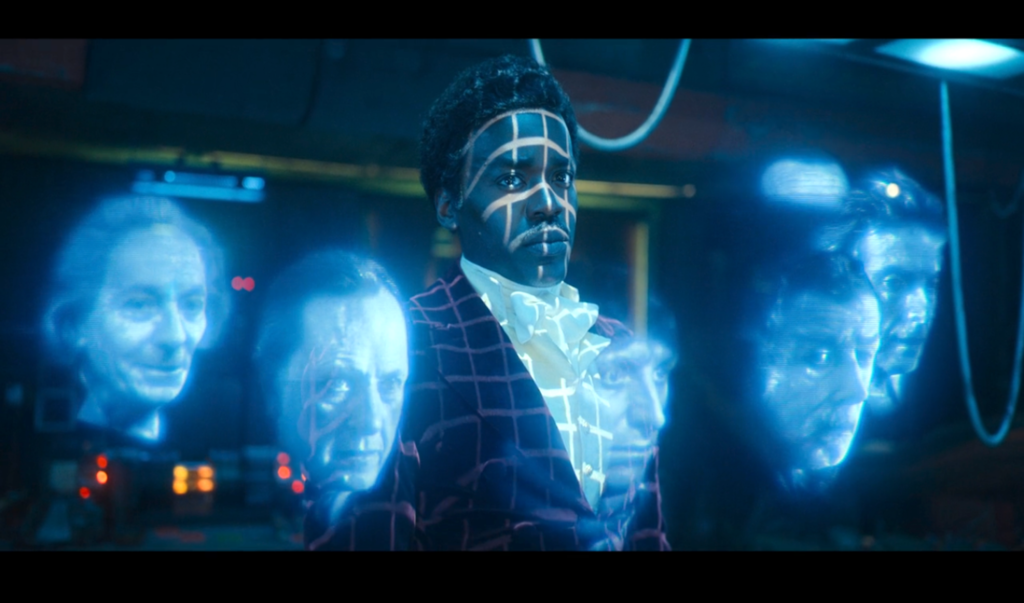
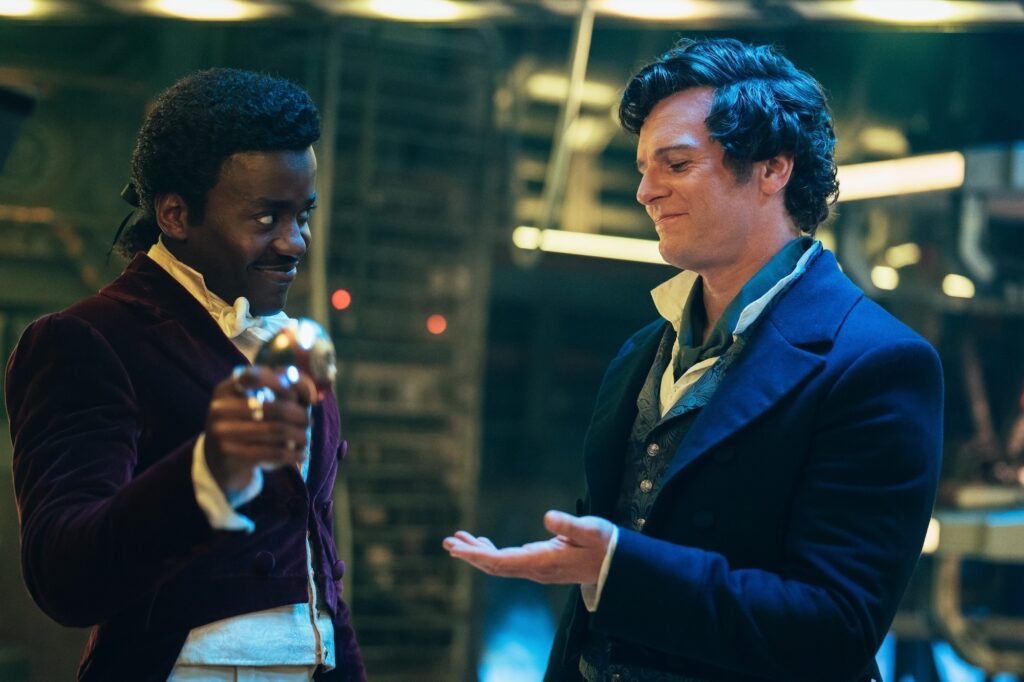
Of course the life changing event the publicity was referring to was The Doctor’s whirlwind romance with Rogue. Reaction among on-line commentators was a mixture of Pride month (in the United States) and prejudice. The latter included ‘Trumpy’ criticism that Doctor Who was grooming its child audience and, of course, “sexualising them”. But if you’ve watched enough Doctor Who, the idea of The Doctor falling in love shouldn’t ruffle any feathers. The first Doctor had a romantic moment or two with an Aztec woman, and I always got the impression that the third Doctor had a bit of a thing for Jo Grant.
Since Doctor Who’s return in 2005, showrunner Davies has certainly granted the Doctor an overt sexuality, leading to a romantic snog between Matt Smith’s Doctor and River Song and a big old smack on the lips between Christopher Eccleston’s Doctor and John Barrowman’s Captain Jack. The difference between then and now is that I don’t think many children are even watching the series. However, in a conversation on stage at Bafta’s “A Life in Pictures” earlier this week Davies enthused about how the latest series is landing with the under 16 and 16-34 demographics.
“It’s doing phenomenally well with the younger audience that we wanted,” Broadcast reported (Registration required).
The claim that watching anything that is not heterosexual is grooming children is now so widespread it must be true. In fact, I recall begging my parents to cut short a trip to Bristol Zoo so I could see an episode of “The Curse of Peladon”, in which The Doctor lulled a ferocious hairy monster called Aggedor. Since then, I have been left feeling that, deep-down, I was really a furry Peladon and have even asked my housing association to provide a box of Aggedor litter rather than a sofa.
Broadcast also reports that Davies sees Doctor Who’s relationship to children in a positive light, saying that the show should be a haven for them in the face of stormy waters online. He recognises that members of Generation Alpha face a lot of anxiety, isolation and sadness.
“You say to those children: ‘Talk to us, if you’re sad, tell us,’” he says “… I want The Doctor to express those emotions. He’s happier than he used to be, he’s sadder than he used to be, and he shows it. He’s started talking about his family, he’s opening up a bit more”.
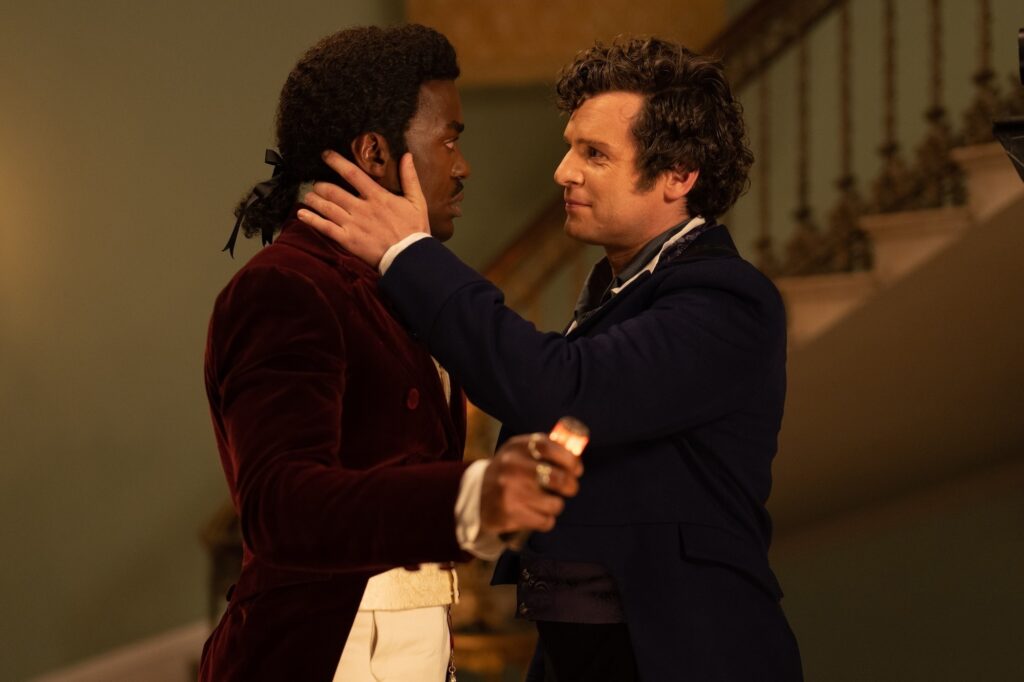
The Doctor’s readiness to tear-up and his exclamation to Rogue that it’s all about emotion! Should be seen in this light.
The tears of a Time Lord may have ruffled a few fan feathers, but those fans who spent the Chibnall seasons arguing that the Doctor should be a male role model should be pleased that we not only have such a model, but one who is directly challenging the toxic masculine norms that are thought to contribute to the high rate of suicides among men.
That said, I’m still trying to work out who Doctor Who is for. So much of the media landscape has changed that I am not sure its traditional family audience exists anymore, either as a demographic taxonomy or as a lived, viewing experience.
Davies has admitted he would have liked higher ratings, but it’s clear that rumours that Doctor Who has failed are for the birds. I await the concluding episodes with interest; I just hope the ending has been planned in advance, and the showrunner isn’t trying to wing it.
Tim Robins
Rogue is available on BBC iPlayer now and on Disney+ worldwide
• Mashable: Who is the mystery Doctor in ‘Rogue’?
• Buy Doctor Who – Scream of the Shalka (DVD, AmazonUK Affiliate Link)
Richard E. Grant is the voice of the Doctor in this six-part animated storyline produced to coincide with the 40th anniversary of the TV sci-fi series in 2003. After materialising in the village of Lannet in Lancashire, the Doctor, along with local barmaid Alison (voice of Sophie Okonedo) and her boyfriend Joe (Craig Kelly), find themselves up against an underground alien force called the Shalka, who, as part of their preparation for an all-out invasion of Earth, are stripping away the ozone layer from the planet.
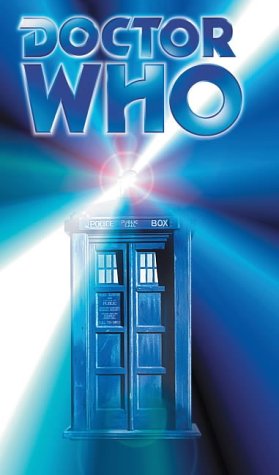
• Buy the novelisation of Doctor Who – Scream of the Shalka by Paul Cornell (AmazonUK Affiliate Link)
When the Doctor lands his TARDIS in the Lancaster town of Kennet, in the present day, he finds that something is terribly wrong. The people are scared. They don’t like going out onto the streets at night, they don’t like making too much noise, and they certainly don’t like strangers asking too many questions. What alien force has invaded the town? Why is it watching barmaid Alison Cheney? And what plans does it have for the future of the planet Earth?
While starting with a small community under threat, this old-fashioned, very traditional but very up to date Doctor Who adventure takes in the entire world, from New Zealand to India, Siberia to the USA, and cosmic expanses beyond.
Categories: Doctor Who, Features, Other Worlds, Reviews, Science Fiction, Television
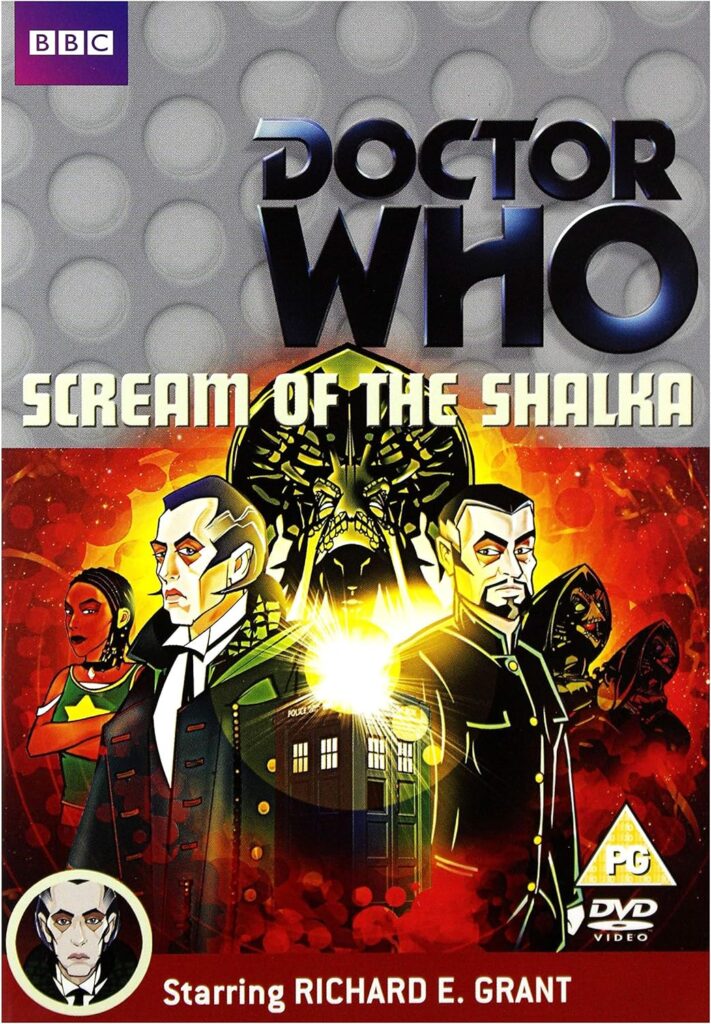
 Final Seventh Doctor “Lost Story” headlines new Doctor Who Magazine
Final Seventh Doctor “Lost Story” headlines new Doctor Who Magazine  In Review: Doctor Who – The Interstellar Song Contest
In Review: Doctor Who – The Interstellar Song Contest  In Review: Doctor Who – The Story & the Engine
In Review: Doctor Who – The Story & the Engine  In Review: Doctor Who – Lucky Day
In Review: Doctor Who – Lucky Day